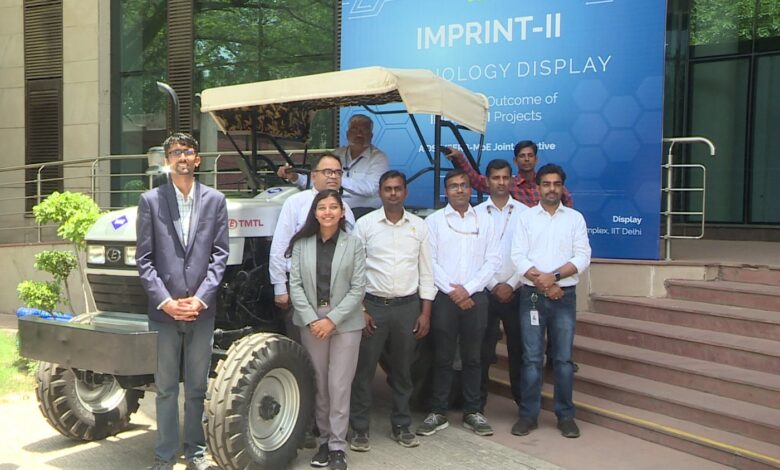India Unveils First Dimethyl Ether-Fueled Tractor, Paving the Way for Cleaner Fuel Applications

In a significant stride towards a sustainable and environmentally friendly transport system, India has introduced its first tractor/vehicle powered by 100% Dimethyl Ether (DME) fuel. This pioneering development marks a new era in the quest for alternative fuels, opening doors to a cleaner and greener future.
Considering that India relies heavily on imported crude oil to fuel various sectors of its economy, DME presents an attractive renewable alternative. Notably, DME can be produced domestically and is already being utilized by countries like Japan, the USA, China, Sweden, Denmark, and Korea to power vehicles. However, its use in internal combustion (IC) engines remains relatively unexplored in the Indian subcontinent.
To bridge this gap and accelerate India’s progress in renewable energy, researchers at IIT Kanpur have successfully engineered a 100% DME-fueled engine equipped with a mechanical fuel injection system. This innovative engine exhibited superior thermal efficiency and lower emissions compared to traditional diesel engines.
The DME-fueled engine demonstrated remarkably low particulate and soot emissions, virtually eliminating smoke generation without the need for costly exhaust gas after-treatment devices or advanced engine technologies. This breakthrough makes DME an economically viable alternative fuel and engine technology for the agricultural and transportation sectors that currently rely on conventional diesel engines.
Supported by the Science and Engineering Research Board (SERB), an institution under the Department of Science and Technology (DST), this research is aligned with NITI Aayog’s “Methanol Economy” program. By converting abundant domestic coal reserves, low-value agricultural biomass waste, and municipal solid waste into methanol and DME, this initiative holds the potential to reduce India’s oil import bill and greenhouse gas (GHG) emissions.
To overcome the challenges associated with DME, such as its lower calorific value and higher compressibility compared to diesel, the researchers developed a custom high-pressure mechanical fuel pump capable of handling greater pressurization. Furthermore, they employed customized mechanical injectors with larger nozzle hole diameters, enhancing DME adaptation and facilitating diesel equivalent power generation. Lubricity additives were introduced to improve DME’s lubrication properties, while DME-compatible materials were used in the fuel injection equipment (FIE) and fuel supply lines. Customized DME tanks were also developed to ensure optimal performance.
Through the use of 3D computational modeling, the researchers determined the optimal design for the FIE system, considering DME induction. Subsequent investigations employed high-speed imaging and phase Doppler interferometry (PDI) to analyze DME’s macroscopic and microscopic spray characteristics. Based on the findings, a dedicated FIE system was developed for the DME-fueled engine prototype, which underwent testing at IIT Kanpur’s engine research laboratory under full throttle performance and part load conditions.
The DME-fueled engine showcased higher brake thermal efficiency and produced negligible soot emissions while significantly reducing levels of hydrocarbons (HC), carbon monoxide (CO), and carbon dioxide (CO2). The research findings have been published in esteemed journals such as “Energy Conversion and Management” and “Fuel.” The developed engine prototype was successfully installed in a tractor and operated by the industrial partner, TAFE TMTL, Alwar.
The newly developed DME tractor presents a cost-effective and eco-friendly solution for agricultural applications. Its simplified engine technology, devoid of expensive and challenging-to-maintain emission control devices, ensures user-friendliness while complying with the strictest emission regulations of today and the future. The smokeless exhaust emissions from the DME-fueled tractor significantly improve air quality in farming communities and the agricultural sector as a whole.




